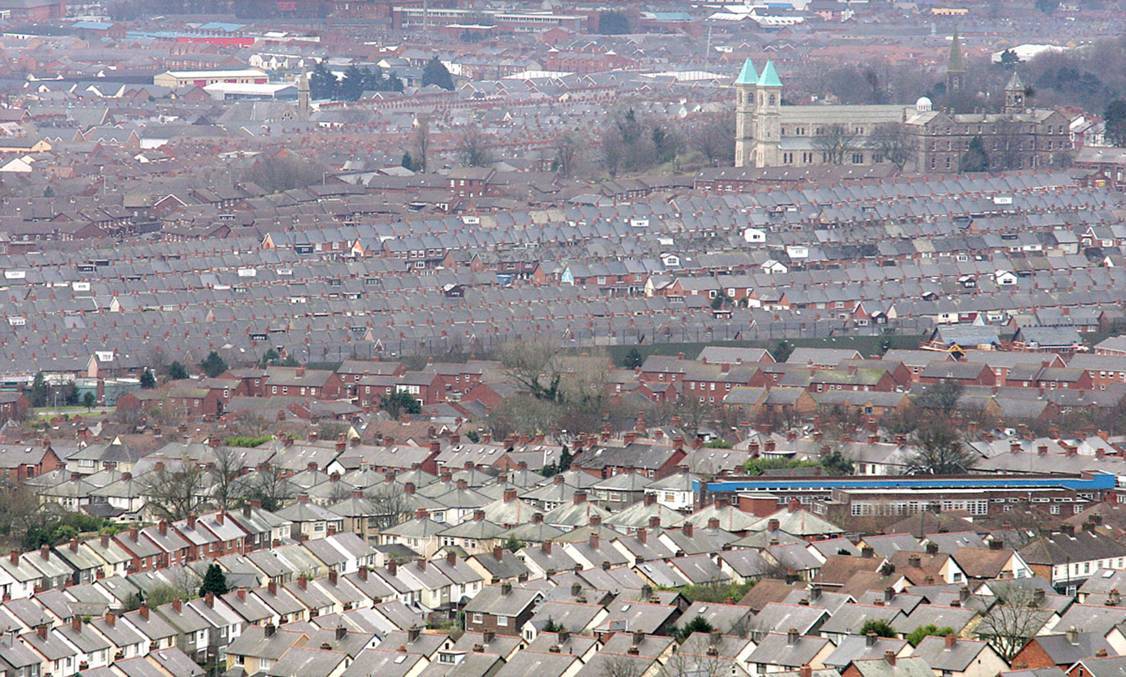THE Northern Ireland Housing Executive could be split into five separate associations and lose direct control of allocation of homes if 90,000 tenants are asked to vote on its future, according to one of the UK’s leading housing publications.
The scenario has been raised by the respected public housing website Inside Housing, a reliable barometer of developments and debate within the social housing sphere in the UK.
Social Development Minister Nelson McCausland had been expected to make an announcement on the fate of the Housing Executive late last year.
In June 2011 consultants PwC was asked by DSD to carry out a review on the future of housing in Northern Ireland.
It concluded that the best option was a new strategic housing authority to act as a landlord against existing NIHE stock under a lease model.
“It is not financially the most beneficial option for the public sector but does provide the best balance between the interests of staff, tenants, citizens and taxpayers,” it said.
It concluded that policy should be delivered by DSD with regulation by a new authority and strategy delivered by a Strategic Housing Authority (SHA).
It recommended landlord services should be delivered by a new social enterprise branded NIHE Homes Ltd.
It said housing stock should be transferred to the new enterprise under leasehold, with ultimate ownership of stock remaining with public sector.
However the announcement has been delayed over the last eight months without explanation.
It is now not expected until September.
A Northern Ireland Audit Office (NIAO) report into the Housing Executive’s management of contract projects, which will be published in weeks, is expected to be highly critical of the housing body.
Earlier this year the Stormont Executive committed itself to transferring 2,000 homes from the Housing Executive to housing associations over the next number of years.
DSD say the decision is justified as the homes require major renovation but there is not public funding to carry out the work.
It is argued that housing associations can fund the redevelopments from the private sector.
Residents on one estate in Derry have already agreed to the transfer.
However it is accepted that housing association tenants can expect to pay up to £10 more in rent than their counterparts in Housing Executive homes.
WHAT NOW FOR THE HOUSING EXECUTIVE?Inside Housing, has now raised the prospect that NIHE could be stripped of its landlord role status.
The Detail understands that plans are at an advanced stage to ballot NIHE’s 90,000 tenants on a decision which could see control of social housing being passed to five `super’ housing associations.
The new associations would each be based in the five key geographical areas across Northern Ireland with the highest density of social housing.
If approved, a separate association would oversee housing in Belfast while a second would be in charge of social housing in Newtownabbey, Antrim, Larne, Ballymena and Coleraine.
A third association would have control of housing in the west of the province, stretching from Magherafelt, Cookstown and Derry through to Strabane.
A fourth association would oversee social housing in Fermanagh, Dungannon, Armagh, Newry, Craigavon and Banbridge while the fifth body would control housing stretching from Lisburn along the North Down coast.
The Detail understands that 50 tenants in the Bloomfield area of Bangor will be asked to vote later this summer on transferring ownership of their Housing Executive properties over to a housing association.
A number of major British housing associations are keen to expand into Northern Ireland should the decision to split the Housing Executive be approved.
The Detail understands that DSD has already had talks with a number of these housing associations.
An NIHE spokesman said it was keeping its 3,000 staff informed of any proposed changes, but that it was continuing to operate as normal, pending any announcement.
University of Ulster housing professor Paddy Gray expressed concerns over speculation that the Housing Executive could be broken up in the near future.
“I’d be concerned about any break-up of the Housing Executive,” he said.
“Even though the executive has had its problems in recent times it’s generally accepted by both communities.”
“It’s important that you have housing taken out of politics and overseen by an organization that has credibility and professionalism.
“There is always a danger when you break something up that doesn’t need to be broken.”
At present the Housing Executive is solely funded by central government and, unlike housing associations, is not
allowed to raise money from the private sector.
If the Housing Executive is split into five, the new associations will then be allowed to secure funding from the private sector.
A similar move to split social housing away from central government has previously been made in Scotland.
However the University of Ulster academic warns that the unique make-up of housing in Northern Ireland means that transfer of the same model may not be an ideal solution.
“The religious issue in Northern Ireland is one thing, but there is another problem in that we only have a small body of housing associations here.
“We have 30 associations at present, but only around 8 or 9 of them have more than 1,000 properties.
“They would be dwarfed if there were five big housing associations created.”
NIPSA trade union spokeswoman Allison Millar expressed concern at the proposed decision to strip the Housing Executive of its key role.
“We’re opposed to the issue of stock transfers and we are lobbying a number of the affected tenants,” she said.
“We don’t believe that this is the appropriate way forward, and we’re asking the minister to invest and allow the Housing Executive to invest and maintain its own stock.
“There’s 90,000 Housing Executive properties and if this policy is maintained then potentially it’s the death of the Housing Executive by a thousand cuts. “
Responding to speculation surrounding the pending cuts to the Housing Executive, a DSD spokesman said:
“A fundamental review of the Housing Executive has been carried out and the Minister for Social Development Nelson McCausland is currently considering the proposals coming from the review.”

